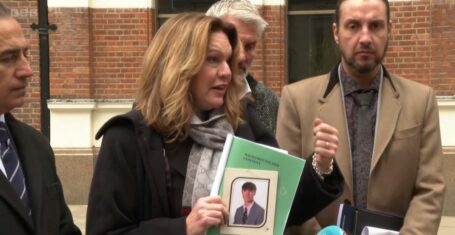
What happens to British MEPs now? An interview with Nottingham’s representative in the EU
Bill Newton Dunn said he was lucky to work alongside people from all backgrounds and nationalities
The European Union (EU) is losing its last standing Member of the European Parliament (MEP) from its inaugural Parliament, following Britain's departure from the EU.
Bill Newton Dunn is Britain’s longest standing MEP and one of the representatives for the East Midlands. He was elected to the First European Parliament in 1979. He went on to become Britain's and Europe's longest standing MEP (discounting periods outside Parliament). Forty-one years later, with Britain leaving the European Union on January 31st, he now finds himself in limbo.
Mr Newton Dunn, from February 2020, will no longer be MEP for the East Midlands (which includes Nottingham). In fact, all of Britain's MEPs will cease to be a representative of anywhere; they shall find themselves unemployed.
So, what happens to them now?
Mr Newton Dunn spoke with The Tab about the European Parliament and the impacts of Brexit on himself and his fellow British MEPs.
He says there has been little change over the last few years for British MEPs like himself working in the EU. They continue to be treated the same, even up to the eve before Brexit.
The only difference he highlighted was that British MEPs have been unable to take on positions of longer-lasting responsibility in the Parliament due to the short nature of their stay (such as being a rapporteur; looking after legislation). This has meant these roles have been handed to 'The Continentals' (MEPs from other member states), as he described them.
The conversation briefly touched upon recent British actions which have tried to interrupt the functioning of the EU. Mr Newton Dunn said Britain's refusal to nominate a candidate for Commissioner, thus forcing the EU to take infringement action against the UK for breaking a treaty, was "completely stupid".
He trod on the topic of Brexiteer MEPs carefully. He acknowledged that there was some amusement the first few times the excited, new Brexiteer members chanted or booed. Yet, he claims, all the other MEPs are tired of their constant "shenanigans" that have now been going on for months. Many of 'The Continentals' are glad Britain is finally leaving.
The worry that Brexiteer MEPs would carry out their usual routine, following the passing of the Brexit Withdrawal Agreement, resulted in a suggestion by the Greens (of the European Parliament) for all MEPs to sing Auld Lang Syne—a scene which found itself going viral on Twitter.
The lyrics to the song—six verses, including a French verse—were provided to every MEP except for, Mr Newton Dunn believes, Brexiteer MEPs.
There was no practise or rehearsal, but the moment that resulted from it was "amazing", he described, saying he was moved by the display of affection to Britain from his fellow MEPs.
"The device originally planned to drown out Farage became a very moving moment." – Bill Newton Dunn
Mr Newton Dunn, reflecting upon what he loved about working in the European Union, said that he lucky to have his job in which he got to work alongside people from all backgrounds and nationalities. Some of whom had fought Communism during the Soviet Era and been imprisoned for it; others tortured by oppressive regimes, all in order "to get their country free and in the European family".
As a member of the Liberal Democrats (having defected from the Conservatives in 2000 due to anti-EU views in the party), he is sad about the nation's departure from the EU. He insists that the European Project to unite and stand up against the threats of China and the US will go on despite Britain "opting out". And, he considers himself lucky to have "put some stones in the lower walls" of what he sometimes considers an "Ancient Cathedral" (the EU).
The question of what British MEPs are to do now, he says, is uncertain. Politics is a risky business and any elected representative has to deal with the fact that they may have to leave office against their will one day.
Mr Newton Dunn did not mention what he personally planned to do, although said he, like everyone, would need to decide whether or not to stay in politics.
British MEPs are to move out on January 31st and retire from the job with immediate effect the moment the clock strikes 11PM GMT.
Cover Image: European Parliament









































